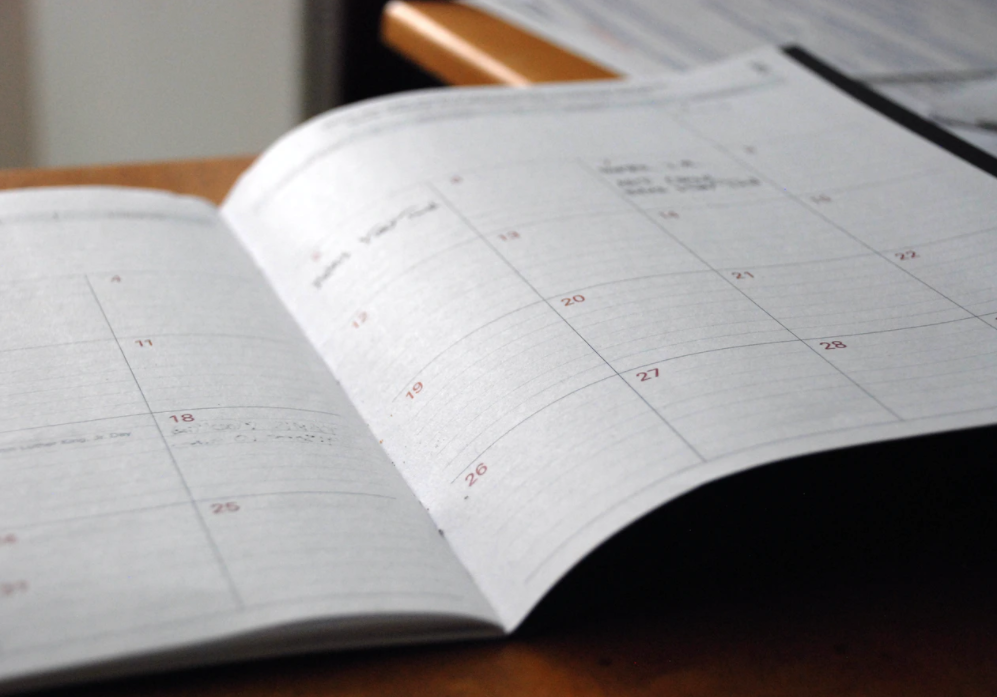5 Ways Students Can Manage Stress Amidst Online Learning
Online learning may be seen by some as an easier alternative to learning within the classroom. There’s no need to commute from your apartment or dorm to the classroom, and you have more free time given this lack of commute. However, many suggest that online learning is even more difficult – harder to focus and stay motivated, and lack of in-person interaction – than the traditional setting.
While much of the world is working to adjust to this new style of education, many students and professors alike are finding themselves incredibly stressed out. Especially for those who are just making the transition into university, an online semester was very likely not what you were looking forward to.
In this new age of digital learning, it is important to not overlook these stressors that can affect students and professors. That’s why it’s crucial to take steps to help manage your stress, energy, and keep yourself performing at your best! Check out our below suggestions for how to best manage your stress amidst online learning!
Manage your time and avoid procrastination
“Time management” is a huge theme that we see within the remote work landscape. As you are working on your own (and in this case, learning on your own) it is very important that you learn how to devote your time as necessary. Perhaps you’re juggling your school work with a part-time job, student organization, or other involvement that makes you a very busy person. When you’re involved in many things and your time is spread thin, this is when good time-management will become key.
For example, if you have a project that is due very soon, or a big exam coming up, this should take priority over something that isn’t due for a while. Procrastination can be a real problem for college students, so it is best to try and avoid this as much as possible. We all procrastinate on things all the time, but nothing feels better than finally completing something that was hanging over your head or really stressing you out!
Learning time management is a key to succeeding in both school and in the working world. If you’ve managed to complete all your urgent assignments and you have the ability to get a jump start on another less-pressing assignment, consider this as well. A big project can sometimes be much easier to tackle by completing a bit each day, rather than all at once!
In addition, you may find that the quality of your essay, report, or other project is much greater when the work is not rushed!

Take a study break
When it comes to preparing for an exam, there is such a thing as studying too hard. Sometimes, our brains become so overloaded with information that we actually stop taking in new information since we’re so overstimulated. While many claim “cramming” as an effective study strategy, some studies say it is not so effective.
It is important to give yourself a bit of a break so you can have a few minutes to recharge and then come back to your studying. Of course, a study break can become legitimate procrastination if you’re not careful, so make sure you’re disciplined with your study breaks.
If you’ve been sitting around for awhile, try getting up and taking a short walk around your building or the block. It’s good to have a few minutes to take all your focus off your work and give yourself a bit of a refresher. Try planning a few short study breaks whenever you’re undergoing a long study session to maximize the information you’re retaining!

Ask for help
While it may seem a bit obvious, your teachers and professors are there not only to teach you, but provide additional assistance to students who need it. Many professors in university hold office hours, allowing students one-on-one time to ask questions and get help on assignments and prepping for exams.
Don’t be afraid to connect with your teacher or professor and ask them for help. You can reach out to ask specific questions, or perhaps you want to ask for some additional materials like study guides or example questions to help you prepare. Most professors will be more than happy to assist you and will appreciate you reaching out for help.

Your classmates are also another excellent resource if you’re having trouble. Consider forming a study group with other students so you can all help each other get ready for a big exam. You can take turns asking questions and reviewing topics which will help you in your preparation. Some people say that studying in a group is much more helpful for them, while others prefer studying alone. Whatever method you prefer is fine, as long as you’re diligent and trying not to stress too hard!
Remember “self care”
When it comes to managing stress, remember how important it is to engage in “self care”. This is the concept of taking active steps to take care of your mind, body, and spirit. Examples of self care can be eating healthy, getting plenty of sleep, exercising, meditation, and so on. Self care is incredibly important in maintaining overall wellness, which is something that can be overlooked by students and professionals alike.
We are all extremely busy in our lives – class, work, clubs, volunteering, sports, the list goes on and on. While we juggle all of our responsibilities, it can be easy to get caught up in all this stress. Don’t forget that you need to take care of yourself and your basic necessities as a human. While pulling an all-nighter may help you complete that big assignment, it means you’ll have to sacrifice sleep as a result, which is arguably the most important thing for us as humans.
Try to keep a good routine of eating, drinking water, and sleeping the recommended 7-9 hours each night. If you have the ability to add in some exercise and meditation into your schedule, that is even better! While you work hard, remember that life is all about balance. It’s not healthy to work 24/7, just as it’s not healthy to goof off 24/7. Make sure each day you’re taking time to engage in self care – your body and mind will thank you for it!

Stay positive
As previously mentioned, life is all about balance. While in school, you will absolutely have your own fair share of both triumphs and shortcomings. There will be times you do incredibly well on an exam, and other times when you receive a grade you’re really not proud of. The bottom line here is you cannot succeed in everything all the time, so don’t aim for perfection.
An important aspect of staying positive is being able to celebrate your triumphs without getting overconfident. When you do really well on an assignment, perhaps that means your study strategy is working very well. It doesn’t mean that you should slack off on studying for the next exam just because you did well on the first one.
The same thing goes for your failures and shortcomings. If you do poorly on an exam or project, don’t wallow in feeling sorry for yourself. Instead, use this as a lesson to get better. Did you really try your best to study or put in your best work? If the answer is no, think about ways you need to improve for the next time around. If you really did put in your best effort, maybe you’re not understanding the material well and should reach out to your professor or a classmate for help.
Staying positive is all about keeping a level perspective. Life is full of successes and failures, and it’s what you do with both of these that will impact how you grow and learn as a person. To quote the great author George R.R. Martin – “a bruise is a lesson, and each lesson makes us better.”

Considering taking part in an internship along with your studies? Wondering how to get an internship with no experience? Check out CRCC Asia’s offering of in-person and remote international internships!

